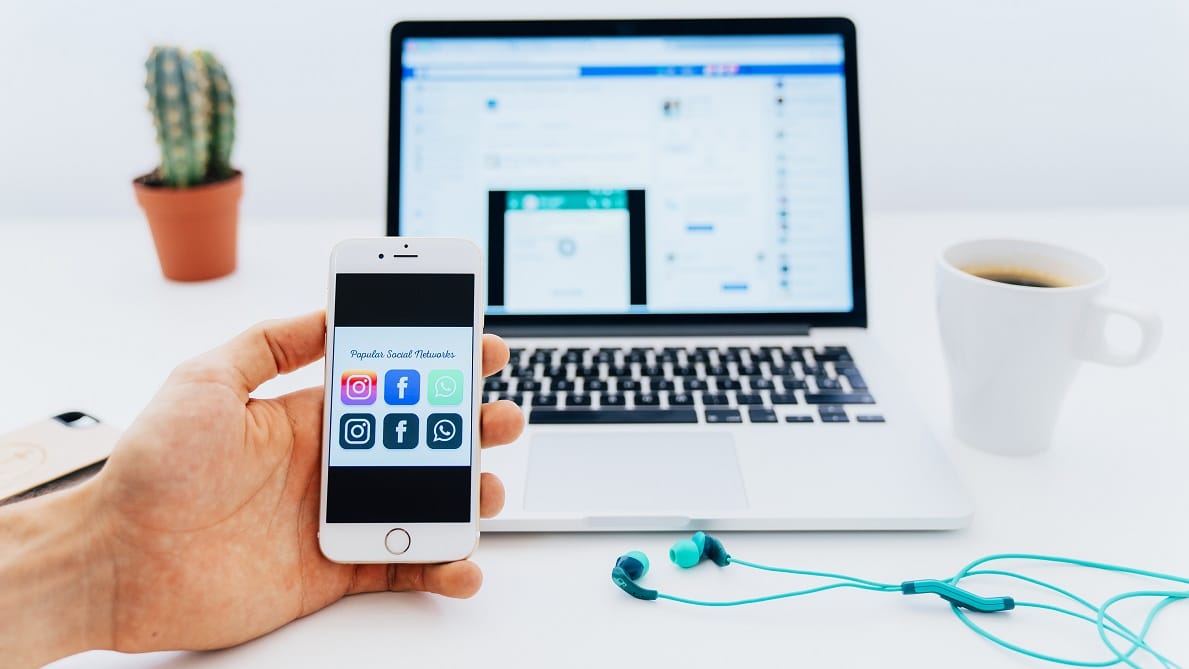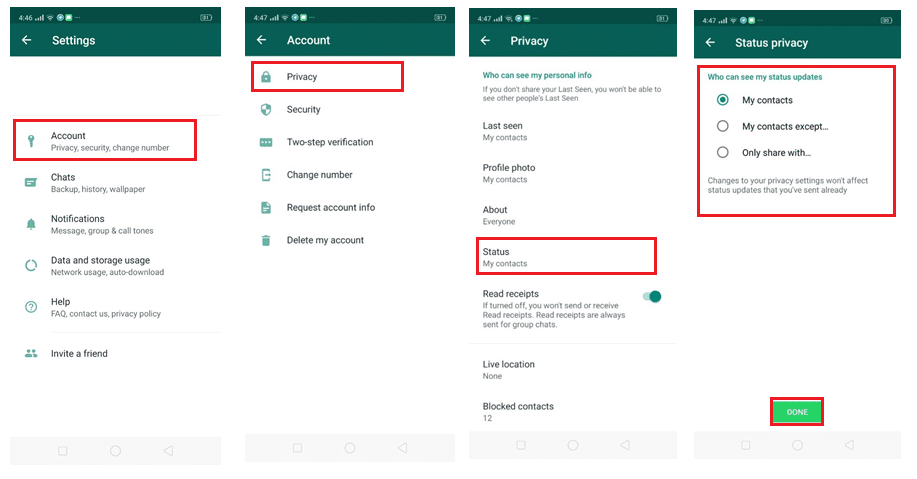WhatSapp is one of the most popular messaging applications in the world. According to statista statistics, the number of users is about 1.5 billion, with 65 billion messages sent daily.
So it's normal to see a lot of security concerns, malware threats, spam, privacy concerns, and user-specific data sharing, especially after the charges against Facebook's owner.
Here are 5 security threats the users of whatsapp should know:
1 - Malware threats to the version of whatsapp on the web:
WhatSapp has a huge user base, which makes it an important hacker target. Since a large number of users rely on whatsapp on the WhatsApp Web, it's easy to target them with malware that could compromise their computers.
The app store on your phone - iTunes store or Google Play store - is well organized. When you search for Wattab in these stores, it's generally clear which application is the official application, and of course this does not apply to the wider web.
Attempts to pass malicious software recently appear to look like whatsapp applications for your desktop, but if you download one of these software on your computer, all of your accounts and data on your device may be compromised.
Other hackers tried a different way, creating phishing websites to trick you into revealing some personal information. Some of these sites masquerade in a format similar to the web version of the app, and ask you to enter your phone number to connect to the service. But actually use this number to send unwanted messages, or link the number with other data leaked on the Internet.
The best way to stay safe is to use applications and services from official sources only, so be sure to use the official Web version of the app, known as WhatsApp Web
2. Unencrypted backup operations:
The messages that you send to whatsapp are encrypted by end-to-end encryption, which means that only your device and recipient are able to decrypt them, and prevents anyone from intercepting your messages, and knowing their content during the transmission, even the company owning the application.
WhatSapp allows you to back up your messages, photos, and videos on either OS or Android so that you can recover accidentally deleted messages and attachments, back up your device, and a backup on your cloud storage service - Whether Google Drive, if you use an Android device, or iCloud iCloud, if you use iPhone or iPad - contains encrypted messages.
But the backup file stored on iCloud, or Google Drive is not encrypted, and because this file contains encrypted versions of all your messages, it is weak in theory.
Because there are no encryption options in the backup location, the security of your stored data depends on how secure your company is to the service. Although there are no breakthroughs for these services yet, this does not mean that your data is completely safe. Your cloud storage accounts, for example: insufficient interest in securing access to your accounts on the service.
3. Exchange data with Facebook:

When Facebook decided to acquire whatSapp, the EU agreed to the deal after Facebook confirmed that the two companies and their statements would be separate.
It did not take long for Facebook to reverse this agreement, and in 2016 the privacy policy for whatsapp came into effect; to allow user data to be shared between the two platforms, but after the reverse reaction, the application allowed users to opt out of data sharing. But this option is no longer in place, and this is probably one of the preparations for Facebook's future plans to create a unified network infrastructure for all its messaging systems - whatsapp, Instagram and Facebook Messenger - and so far reports indicate that each service will continue As a standalone application, all messages will be exchanged over the same network.
4.Fake news
In recent years, social media companies have come under fire because they have allowed misleading and fake news and information to be posted on their platforms. Facebook has been convicted in particular for its role in spreading misinformation throughout the 2016 US presidential campaign.
Two of the most prominent cases involving the whatsapp platform in India and Brazil were used in the large-scale violence that occurred in India in 2017 and 2018, as well as the main source of counterfeit news in Brazil throughout the 2018 election period.
But whatsapp added a new feature to help solve one of their problems: adding users to groups without their consent, as the new feature allows users to specify who can add them to groups.
You have also restricted forwarding, so you can only forward messages to only five individuals or groups, instead of the previous limit of 20. The company has also removed the Forward Shortcut button in a number of areas as well.
5. Share whatsapp Status With contacts:
WhatSapp is not just sending and receiving messages. A new feature has been added in 2017, which allows users to share photos, notes and short videos on their account, similar to Instagram, Snape Chat, and all contacts You have access to or share them, but you can make this feature limited to specific contacts for more privacy.
Go to the Settings menu.
Click on the Account option, and then on the Privacy option.
Under the Who can see my personal info section, you will find an option titled Status.
Click on it and you will see three options: Contacts My Contacts, where all contacts can access your whatsapp status, and the second option is Contacts except My contacts except, which allows you to select a group of contacts who can see the status, Only with Only share with, which allows you to select specific contacts you can share and update the status with them, so choose Share only, if you want to restrict access to your status to people you select from among your contacts.





0 Comments